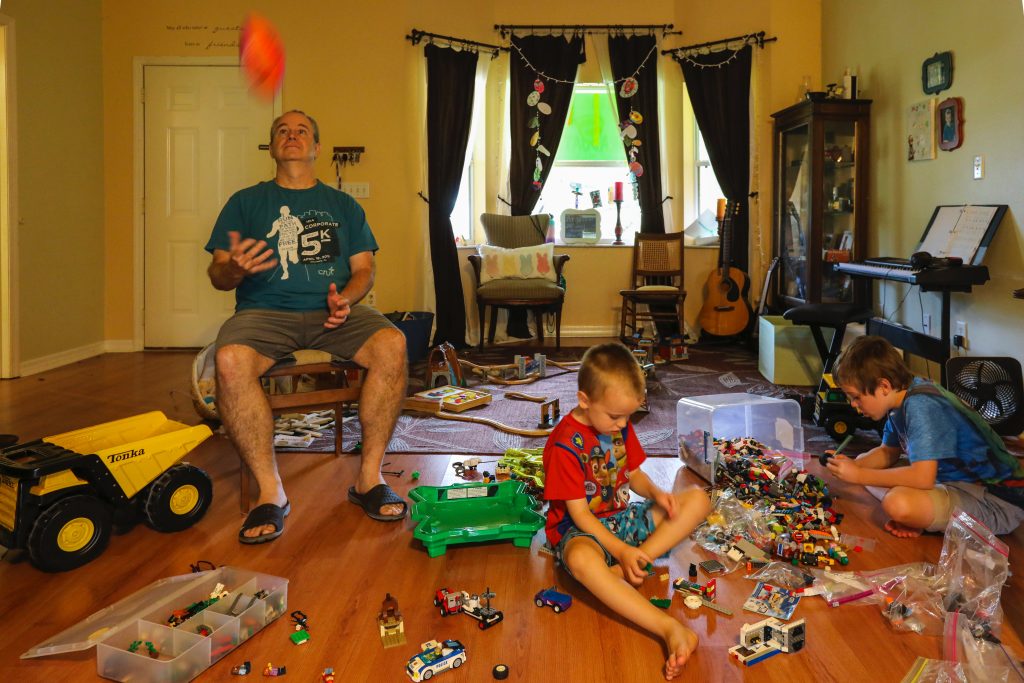Have you ever thought about how the simplicity of play can be essential in your child’s development? Play has a major role in a child’s social, emotional, physical, and mental health. Whether it’s dolls, legos, trucks, make-believe, climbing, jumping, etc. know that whenever your child plays, they are becoming healthier beings.
Play comes in many forms. When children have the chance to freely choose their favorite type of, they have the opportunity to increase their imagination and creativity. For this reason, children should be given the freedom to express themselves and take full advantage of their autonomy. Freely chosen play also increases motivation and energy.
For example, if a child loves soccer and desires to join a school team, they will be motivated to participate and show up for practices. If a child is forced to play something they do not enjoy, they will of course be less motivated. Doing so can diminish their health.
Social Health
Play supports social health by improving skills such as
- verbal communication
- nonverbal communication
- emotional intelligence
- listening
- empathy
- expression
- collaboration
- sharing
Play offers the opportunity to interact with others and eventually have the skills to make relationships and friendships. As much as play is important for children to interact with others, another important skill they can develop is independence.
Emotional Health
Play additionally supports emotional health by improving skills such as
- self-regulation
- attention
- cooperation
- concentration
- focus
- leadership skills
- confidence
- curiosity
When children are given the choice on their desired play, they learn how to set rules for themselves and for others to follow. They are able to set goals and practice expressing an array of emotions such as joy, sadness, fear, anger, etc.
Mental Health
Even children experience stress. Play offers children an imaginative and unique way to release their emotions and daily stressors. Play supports mental health by improving skills such as
- developing coping strategies
- problem and conflict solving
- releasing energy
- increased self-esteem
- self-expression
When children learn these important skills early in life, they are more likely to use these skill sets later in their youth and adulthood years. Not only is play beneficial for their present development, but they develop practical skills to use in their future occupations and schooling.
Physical Health
Active play such as running, swimming, jumping, dancing, etc. all enhance physical activity. Blood pumps throughout their bodies, breath travels in and out their noses, sweat trickles from their foreheads, muscles are expanded…
Physical activity also stimulates parts of the brain that release healthy chemicals such as endorphins, serotonin, and dopamine. Play supports physical health by
- building strong bones, muscles, joints
- strengthening lungs
- maintaining healthy weight
- enhancing thirst and hunger
- reducing risks of health complications and disorders
- improving flexibility, coordination, balance
- enhancing sleep
Physical play is important because every child needs a certain amount of hours of physical activity for optimal health and growth.
Children aged 1-3 years old need at least one hour of activity each day. Children aged 3-5 years old need at least three hours each day. Children aged 5-18 years old need at least a few hours of light activity, and at least three days in the week of more rigorous activity.
It’s important to note that all these different aspects of health work interdependently to encourage healthy wellness in a child.
For example, when a child is physically active during play, their brain releases endorphins. Endorphins are those chemicals in the brain that make you feel pleasure and happiness. Endorphins also reduce pain, which are all connected to positive mental and emotional health.
Play and the Family
Playing with your child also gives you the opportunity to develop a healthy relationship with them. Play offers special time spent with them. You can interchange creativity, laughter, and connection with your child.
Spending time with your child by playing is important for mental and emotional health. Children who have healthy relationships with their family members are happier and healthier. However, it’s important to allow your children to take the lead in how and what to play. This enhances assertiveness and trust between family members and children.

by Mick Haupt
Ways to Encourage Play in the Household
Play should start first in the home. By encouraging play in the household, children are more likely to extend their play outside in schools, daycare, or with their friends. There are many ways to encourage more play in the household…
- host family game nights
- limit technology and distractions during play hours
- structure time-limited play with family members
- take your children to the store so they can pick their favorite play items
- go outside and get creative with outdoor play
- try new board games
During these playful connections, you will be happy to know that your child’s social, physical, emotional, and mental health are enhancing. Your child’s development will thank you in the present and the long run.
Sources: https://pediatrics.aappublications.org/content/119/1/182
https://www.nidirect.gov.uk/articles/how-play-helps-childrens-development
https://www.gse.harvard.edu/news/uk/18/06/summertime-playtime
https://www.miracle-recreation.com/blog/role-of-play-in-the-children-mental-health/
https://www.encourageplay.com/connect-through-play

